SpeakersA
Jean-François Abramatic is Emeritus Senior Scientist at Inria, the French research institute in computer science and applied mathematics. Jean-François's career has been shared between research and industry. Jean-François's research activities were focused to Digital Image Processing. Jean-François was also engaged in the development of the Internet and the World Wide Web. He has been Chairman of W3C, the World Wide Web Consortium from 1996 to 2001. From 2001 to 2009, he was Chief Product Officer of ILOG, a French software company which was acquired by IBM in 2009. From 2009 to 2013, Jean-François was in charge of Development Innovation & Productivity in the Enterprise Transformation division of IBM headquarters. Jean-François holds a PhD from University of Paris VI.
Pascal Aventurier has been in charge of the Scientific and Technical Information Department at IRD since 2017. This service is part of the Culture and Science and Technology Mission of the IRD Science Pole. He obtained a DEA (Master 2) in Information and Communication Science from Grenoble University 2 in 1990 and a Master of Applied Mathematics in Social Sciences from Paris Diderot University in 1989.
Dr Paul Ayris was the President of LIBER (Association of European Research Libraries) 2010-14. He is Co-Chair of the LERU (League of European Research Universities) INFO Community. He chairs the OAI Organizing Committee for the Cern-Unige Workshops on Innovations in Scholarly Communication. He is also Chair of JISC Collections’ Content Strategy Group. On 1 August 2013, Dr Ayris became Chief Executive of UCL Press. He is a member of the Provost and President’s Senior Management Team in UCL. He has a Ph.D. in Ecclesiastical History and publishes on English Reformation Studies. In 2019, he was made a Fellow of the Royal Historical Society. He joined UCL in 1997 B
Arianna Becerril is full-time professor-researcher at the Autonomous University of the State of Mexico (UAEM). She’s the Executive Director of Redalyc. Member of the National System of Researchers (SNI) of Mexico. She holds a PhD and MSc in Computer Science, Tecnológico de Monterrey, Mexico. And she holds a BA in Computer Engineering, UAEM. She’s part of the founding team of the Network of Scientific Journals from Latin America and the Caribbean, Spain and Portugal (redalyc.org). Dr Becerril is founder and president of AmeliCA Conocimiento Abierto S.C. She’s co-founder of Red Mexicana de Repositorios Institucionales (“Mexican Network of Institutional Repositories”). She’s written dozens of articles in scholarly journals and has penned three books. Dr Arianna actively partakes in various international initiatives, she’s member of the committee of InvestInOpenInfrastructure (IOI), and representative member of Latin America in The Global Sustainability Coalition for Open Science Services (SCOSS), she was also part of the Advisory Board of the Directory of Open Access Journals (DOAJ). Professor Arianna has participated in numerous national and international conferences. Her research interests are Open Access, technologies for scientific publications, Artificial Intelligence to recover and process information, Semantic Web and Linked Open Data. She’s delivered several presentations lately: ‘Academy- owned non-profit scholarly and library publishing leveraged by semantic technologies: a strategy to achieve an inclusive and sustainable science communication ecosystem’ (inaugural conference at Library Publishing Forum, Vancouver, Canada, 2019); ‘The future of scholarly publishing and open access’ Fórum de Editores de Periódicos de Educação das Regiões Norte e Nordeste (Natal, Rio Grande do Norte, Brazil, 2019); ‘The evolution of the scholarly digital journal in Redalyc.org’ 1 Simpósio Internacional de Produção Digital. A produção de periódicos e livros. (Rio de Janeiro, Brazil, 2018); ‘Ciência aberta e democratização de periódicos científicos na ciência latino-americana’, LATmetrics (Brazil, 2018); Open Science and Research Seminar, organized by University Ricardo Palma (Peru) and University of Brasilia (Brazil) 2018.
Romain BOISTEL is a documentalist in charge of Scientific and Technical Information at the École des Ponts ParisTech, after having been an IT developer at OpenEdition. He is in charge of electronic resources and negotiations with publishers in connection with Couperin, and works on access to and distribution of scientific production.
Frédérique BORDIGNON is a Research Engineer and a linguist by training. She was in charge of strategic monitoring at INSEP and then headed its information and documentation department. She is currently in charge of the Scientific and Technical Information Department at École des Ponts ParisTech and works for researchers. In particular, she works to promote free access to scientific production. She shares her experience on the Carnet'IST' research notebook (https://carnetist.hypotheses.org).
Jeroen Bosman is scholarly communications and geoscience librarian at Utrecht University Library in the Netherlands. He is an expert in the field of open science and open access policy and practice and tools. His main interests are Open Access and Open Science in all academic fields, scientometrics, visualization and innovation in scholarly communication. He is an avid advocate for Open Access, Open Science and for experimenting with open alternatives. He has led dozens of Open Science workshops, including internationally. He is co-lead of the 101 Innovations in Scholarly Communication project that surveys and charts developments in scholarly communication, research workflow tools and practices. Through a Force11 working group he helps foster a commons approach to scholarly communication. C
Before being elected President of Sorbonne University, Jean Chambaz was President of Pierre and Marie Curie University (UPMC) from March 2012 to December 2017. He was previously Vice President Research and then Vice President Medium and Resources.
Christine Cherbut has been INRA's Deputy Director General for Scientific Affairs since April 2017. Her career has led her to occupy the positions of director of a research unit in Nantes (1998-2003), of scientific director of the GIP Centre de Recherche en Nutrition Humaine de Nantes (1997-2003), and to become vice-president of the AFSSA Human Nutrition Committee (2000-2003). She then served as Director of Nutrition and Scientific Support for the Nestlé Group (Switzerland) for 9 years (2003-2011).
Geraldine Clement-Stoneham is the Head of Knowledge Management and Scholarly Communication at the Medical Research Council, a part of UK Research and Innovation, where she leads on the development and implementation of open science policies. Geraldine is active both at national and international level, working with other funders and stakeholders to harmonise policies and develop good practice. She is a member of the Europe PubMed Central Funders Committee, the ASAPbio member advisory group, and is the UKRI representative on two Science Europe Working Groups on Open Access and on Research Data. She has most recently contributed to the development of the Science Europe Framework for Discipline-specific Research Data Management. She currently sits on the UKRI Open Access policy review Steering Committee, which aims to present a revised UKRI open access policy by early 2020.
Olivier Coutard is a socio-economist, researcher at the CNRS since 1996, and senior researcher since 2007. His research focuses on the management and regulation of network services (water and energy supply, urban transport, telecommunications), reforms in these sectors and their social, spatial and environmental implications. He is currently working on urban energy policies and the urban challenges of energy transitions; and on transformations in the organization of urban services, in particular the questioning of major technical systems, the development of alternative socio-technical configurations and the political challenges of the "post-network city". D
Marin Dacos is the Open Science Advisor to the Director General for Research and Innovation at the Ministry of Higher Education, Research and Innovation. He received the CNRS innovation medal in 2016. For more than twenty years, he has been working for the dissemination of research results in open access for society as a whole. He founded and directed OpenEdition Center, a national research infrastructure that develops OpenEdition, an electronic portal in the humanities and social sciences that has become a reference on a European scale.
Jean-Christophe Desconnets is a research engineer in geomatics. He is part of the MICADO team of the ESPACE-DEV joint research unit. He has two complementary skills. The first concerns the environment and more particularly the study of the water cycle. He obtained a doctorate in Water Science (University of Montpellier, 1994). His second skill is in computer science. It focuses on geographical information systems (Master's degree in computer science, 2000). He obtained his habilitation to direct research at the University of Montpellier, I2S doctoral school, specializing in computer science in November 2017 with a thesis on the research of spatio-temporal information: application to satellite images.
An alumnus of the Scuola Normale Superiore di Pisa, with a PhD in Computer Science from the University of Pisa, Roberto Di Cosmo was associate professor for almost a decade at Ecole Normale Supérieure in Paris. In 1999, he became a Computer Science full professor at University Paris Diderot, where he was head of doctoral studies for Computer Science from 2004 to 2009. A trustee of the IMDEA Software institute, and member of the national committee for Open Science in France, he is currently on leave at Inria.
Nathalie Drach-Temam est professeure en informatique et vice-présidente recherche, innovation et science ouverte à Sorbonne Université. Après avoir travaillé à l'université de Rennes 1, l'université de Paris-Sud et l'INRIA, elle a rejoint l’université Pierre et Marie Curie (UPMC) en 2004. Elle a monté et dirigé l’équipe ALSOC du laboratoire d’informatique de Paris 6 (Sorbonne Université/CNRS) de 2006 à 2011, ainsi que le Master "Systèmes Électroniques et Systèmes Informatiques". Vice-présidente en charge de l’insertion professionnelle et de la vie étudiante de 2012 à 2016 de l'UPMC, elle devient vice-présidente en charge de la formation et de l'insertion professionnelle de 2016 à la création de Sorbonne Université début 2018. F
Romain Féret est conservateur de bibliothèque. Il est responsable des services de gestion des données de recherche au Service Commun de la Documentation de l'Université de Lille et chargé de mission open access. Il travaille particulièrement sur l'accompagnement des projets ANR et H2020 en matière de science ouverte.
Après une carrière de recherche de 10 ans dédiée à l’ultrastructure de l’ADN et du nucléosome, Patrick Furrer poursuit sa carrière comme point de contact national pour les programmes européens de recherche en technologies de l’information entre 2001 et 2013. En 2014 il rejoint la Haute Ecole spécialisée de Suisse Occidentale en tant que vice-recteur pour la recherche et l’innovation. En 2018 il rejoint swissuniversities à Berne pour diriger le programme national de coopération en information scientifique de l’ensemble des hautes écoles suisses. G
Françoise Genova, ancienne directrice du centre de données astronomiquede Strasbourg, est un membre actif du groupe de travail EOSC FAIR et membre de la Research Data Alliance (RDA) depuis sa création. Elle dirige actuellement le Nœud National RDA France, mis en place par le CNRS sous l'égide du projet RDA Europe 4.0. Elle a fait partie du groupe d'experts de la Commission européenne sur la concrétisation des données FAIR (2017-2018) et est l'un des auteurs du rapport du groupe d'experts "Transformer FAIR en réalité" (2018). Elle a été membre du Data Seal of Approval Board (2016-2017), du Comité scientifique du WDS (2009-2015) et du Comité exécutif de CODATA (2010-2012). Elle est également chargée de mission à temps partiel au ministère de l'Enseignement supérieur, de la Recherche et de l'Innovation (MESRI) depuis 2014. K
Martina Knoop est physicienne expérimentatrice, son domaine est la physique quantique et les mesures spectroscopiques de précision. Depuis 2014, elle est Chargée de Mission à l’Institut de Physique du CNRS, son portefeuille comprend l’information scientifique et technique, l’interdisciplinarité et elle co-préside le comité parité-égalité du CNRS. Elle est engagée sur la thématique des publications scientifiques et de la science ouverte depuis plus de dix ans, au sein des sociétés savantes en France et en Europe, au CNRS et dans son université (Aix-Marseille Université), elle copilote le collège "publications" du Comité pour la Science Ouverte depuis sa création en 2018.
Bianca Kramer is librarian for life sciences and medicine at Utrecht Library, with a strong focus on scholarly communication and Open Science. Through her work on the project '101 innovations in scholarly communication' she investigates trends in innovations and tool/platform usage across the research cycle, with special attention to open scholarly infrastructure. She regularly leads workshops on various aspects of scholarly communication and open science for researchers, students and other stakeholders in scholarly communication, and has an active interest in data- and network visualization. She is a member of the steering committee of the Force11 Scholarly Commons Working Group, board member of FORCE11, and was member of the 2018-2019 EC Expert Group on the Future of Scholarly Communication and Scholarly Publishing. L
Yvette LAFOSSE est chargée d’ingénierie et d’animation de formation au sein du service de Formation-DoRANum de l’Inist-CNRS. Elle est coordinatrice de l’évolution de la plateforme d’autoformation DoRANum. Elle développe de nouvelles formations mixtes qui mêlent l’apprentissage numérique et d’autres modalités pédagogiques comme le jeu coopératif. Olivier Le Gall est directeur de recherche Inra. De 1986 à 2006 il a exploré la diversité et la biologie des virus de plantes. De 2006 à 2012, à la direction du département Inra "Santé des Plantes et Environnement" et du métaprogramme "Sustainable Management of Crop Health", il a stimulé une approche interdisciplinaire pour la santé des cultures : d’abord autour du couple biologie-écologie, puis en y joignant l’agronomie et les sciences sociales. Il a aussi réorganisé les recherches de l'Inra sur les abeilles. Directeur général délégué de l'Inra de 2013 à 2017, il a coordonné l'élaboration de sa stratégie à l'horizon 2025, #Inra2025, et promu les approches de science ouverte. Depuis 2017, il préside le conseil de l’office français de l'Intégrité scientifique. M
Juriste de formation et conservateur de bibliothèques de profession, Lionel Maurel est aujourd’hui Directeur Adjoint Scientifique de l’INSHS, en charge des questions d’Information Scientifique et Technique et de Science Ouverte. Spécialiste des questions juridiques liées au numérique (propriété intellectuelle, réutilisation des données publiques, protection des données personnelles, etc.), il siège notamment au Comité d’éthique et de prospective de la CNIL.
Kenneth Maussang graduated in physics from Ecole Normale Superieure (Paris) in 2006. He received his Ph.D. degree in 2010 from Université Pierre et Marie Curie (Paris, France) in quantum physics, performed in Laboratoire Kastler Brossel (ENS, UPMC, CNRS), where his research dealt with atomic physics, more specifically degenerated ultracold quantum gases manipulated with atomchips technologies, and atomic squeezed states in Bose-Einstein condensates. From 2011 to 2016, he was a postdoctoral fellow in Laboratoire Pierre Aigrain (ENS, UPMC, Univ. Paris 7, CNRS), where his research was oriented toward terahertz technologies, including THz-TDS and quantum cascade lasers, applied to condensed matter physics. From 2007 to 2016, he was appointed Professeur Agrégé Préparateur at Ecole Normale Supérieure. Since 2016, he has been appointed associated professor at Université de Montpellier. His research interests are still oriented towards terahertz technologies, spectroscopy and quantum computing. Since 2017, he's appointed membre of the jury of Agrégation Externe de Physique-Chimie. Since spring 2019, he's invited professor at Ecole Centrale Casablanca (Morocco), giving introduction lectures on quantum computing. He has authored 16 publications in peer-review journals, 2 patents and contributed to 20 conference proceedings.
Eva Méndez is a faculty member in the Library and Information Sciences department at Universidad Carlos III de Madrid, where she is also Deputy vice-president for Research Policies. Open Science. Her research focuses in metadata for digital infrastructures, linked open data and Open Science. She is currently the chair of the European Open Science Policy Platform (OSPP) and co-chair of the Working Group on Open Science of YERUN. She participates also in different commissions and working groups on Open Science in Spain. Dr. Méndez is partner of FAIRsFAIR and FAIR4Health EU project and Research Data Alliance Ambassador.
Pierre Mounier is Deputy Director of OpenEdition and co-coordinator of the European OPERAS infrastructure with Suzanne Dumouchel. He is co-pilot of the College Europe and International of the French Open Science Committee with Julien Roche. His work focuses on open scholarly communication in the humanities and social sciences as well as digital humanities. P>> Antoine PETIT, Président Directeur Général, CNRS
Vanessa Proudman has over 20 years’ international experience working with many leading university libraries worldwide. She also headed information and IT at a UN-affiliated international research institution in Vienna for 10 years. She has been programme and project manager to Europeana.eu. As Director to SPARC Europe, Vanessa is working to make Open the default for education and research. R
Bernard Rentier is a biologist, professor emeritus of Virology at the University of Liège where he was also vice-rector in charge of research and scholarly communication (1997-2005), then rector of the University of Liège (2005-2014). He has implemented the "Liège model" of "green" open access, making it mandatory to deposit publications in the "ORBi" institutional archive, this obligation being linked to internal evaluation procedures. He founded and chaired the international association EOS (Enabling Open Scholarship, 2007-2017). Since his retirement, he has remained very active in the field of Open Science with local governments, the European Commission and the EUA. His book "Open Science, the challenge of transparency", in its English version, is part of the "RRI Tools" of the EC Open Science Toolbox and has just received the 2019 Prize for the Political Book in Belgium. B. Rentier is an honorary doctor (2014) from the Université du Québec à Montréal for his work in support of Open Access around the world.
S>> Véronique STOLL, Observatoire de Paris Véronique Stoll is the Chief Curator of Libraries. She has been Director of the Paris Observatory Library since 2016, where a strong emphasis is placed on supporting researchers in open science.
Dimitri Szabo is an engineer at INRA. He is a member of the Institute's future Directorate for Open Science, he is administrator of the Institute's open data portal: Data Inra and assumes the new role of FAIR Data Officer. He is also a member of the Research Data Alliance (RDA) and of GOFAIR's Food System Implementation Network (FooSIN). V
Marc Vanholsbeeck est titulaire d'un doctorat en information et communication, avec une spécialisation en évaluation de la recherche et en communication savante. Il est à la tête de la Direction de la recherche scientifique du Ministère de la Fédération Wallonie-Bruxelles, représentant la Belgique dans différents comités et groupes de travail de l'Espace européen de la recherche (EER) et du programme-cadre Horizon 2020. Marc est actuellement le président du groupe de travail permanent de l'EER sur la science ouverte et l'innovation. Ce groupe prodigue des conseils stratégiques sur l'élaboration et la mise en œuvre de politiques et d'initiatives dans le contexte de la science et de l'innovation ouvertes, afin d'améliorer l'accès à l'information scientifique et la circulation des connaissances. Il possède également une vaste expérience en tant que représentant de la Communauté française de Belgique au sein du Groupe de suivi du processus de Bologne (BFUG) et d'autres groupes de travail liés à l'enseignement supérieur. En outre, Marc Vanholsbeeck enseigne les méthodes de recherche en sciences sociales ainsi que la communication scientifique à l'Université Libre de Bruxelles. L’article le plus récent sur l’Open Access dont il est le co-auteur est Ten hot topics around scholarly publishing, publié par la revue Open Access Publications (https://doi.org/10.3390/publications7020034). |
| Online user: 14 | Privacy |

|
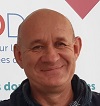 >>
>> >>
>>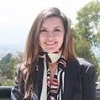 >>
>>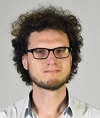 >>
>>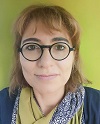 >>
>>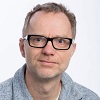
 >>
>> >>
>>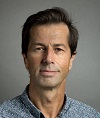 >>
>> >>
>>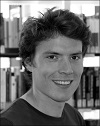 >>
>> >>
>>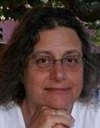 >>
>>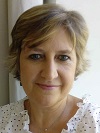 >>
>>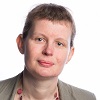
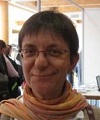 >>
>> >>
>> >>
>>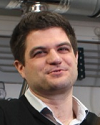 >>
>>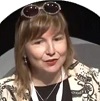 >>
>> 
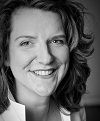 >>
>> >>
>>